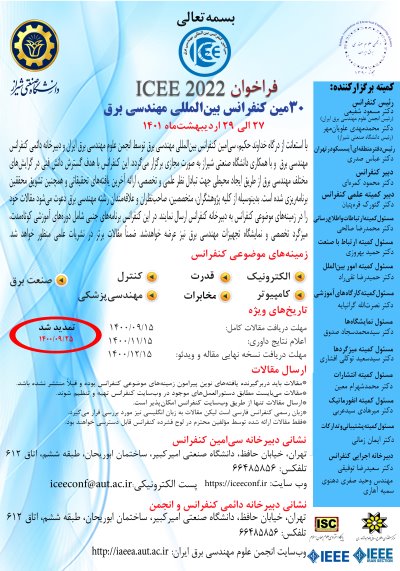0% Complete

نویسندگان :
کلمات کلیدی :
چکیده :
لیست مقالات بایگانی شده
Arian Mianji - Mohammad Bemani - Saeid Nikmehr - Ahmad Atashpaz Gargari
Ehsan Varasteh - Seyed Sadra Kashef - Morteza Valizadeh - Mehdi Ranjbar Zefreh
Maryam Pourmahdi-torghabe - Hamed Heydari-doostabad - Reza Ghazi
Seyedeh Mahsa Zakipour Bahambari - Saeed Khankalantary
Shwan Sheikhahmadi - Ali Hesami Naghshbandy - Ayda Faraji
محمد بزرگپور رودباری - میثم جعفری نوکندی - محمد هاشمی مصیر
Somayeh Gholam Mehraban - Mohsen Jalali - Mostafa Azadbakht
Mohammad Amirkhani - Ehsan Farmahini Farahani - Alireza Eikani - Mojtaba Mirsalim - Javad Shokrollahi Moghani
Mohammad Amin Chaychizadeh - Nader Komjani




